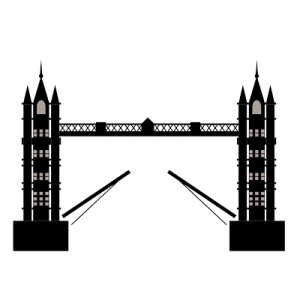The police killing of George Floyd, an African American man, was a pivotal moment for law schools and their efforts to improve diversity and inclusion. Law schools had been striving to boost diversity for years, but the Black Lives Matter protests sparked by Floyd’s death acted as a catalyst for deeper reflection and change.
More than a year on from this events, law schools are still doubling down on diversity and inclusion. And for good reason. In many countries, the legal services industry is primarily white, especially in the top brass.
In addition, the best law firms draw from a small pool of elite academic institutions, especially in the US. Law schools have an opportunity to drive meaningful and lasting change to their own institutions, law firms and the justice system.
However, they have also contributed to the lack of diversity in the legal profession that is said to threaten the commercial success of law firms and contributes to inequities in the judicial process. According to the Law School Admission Council, in the 2018-19 academic year there were 8,956 Black applicants for American law schools compared with 38,494 white candidates.
Fewer than five percent of associates at elite law firms in 2018 identified as Black, according to the National Association of Law Placement – a far lower proportion than in the overall US workforce. The proportion of Black partners is even lower.
Angela Onwuachi-Willig, the dean at Boston University School of Law, says the tragic death of Black Americans has galvanized her counterparts at law schools across the country. Deans have made earnest statements of intent to eradicate inequalities in their own institutions and recruit more diverse faculty so that Black students do not “feel like tokens or feel uncomfortable”.
“We can’t all say we need to have justice out on the street without looking inward at our own institutions and the various ways we may facilitate racism on a regular basis,” says dean Onwuachi-Willig, who is Black.
At BU Law the proportion of African American students is eight percent. They may face significant financial hurdles: an LL.M. can cost as much as $65,000 at the top schools. “There are great wealth disparities in this country that extend all the way back to slavery,” says Onwuachi-Willig. “That did not allow African Americans to have inter-generational access to wealth.”
Many law schools offer scholarships, but she says these are rarely means-tested. Financial aid is predominantly linked to merit.
BU Law provides scholarships as well as grants for study materials and travel expenses for interviews and internships, but Onwuachi-Willig says “I would need at least $1bn to provide the full cost of attendance for all our students,” including JD students and LL.M.s.
BU Law is also striving to integrate more issues of race in the classroom by diversifying the limited number of case studies featuring a Black or minority ethnic protagonist.
Aside from financial barriers, first generation minority students may not have the same access to information, advice and networks as their more privileged peers. Fordham Law in New York supports pipeline programs to help address this disparity.
For example, its IDEAL program (Increasing Diversity in Education and the Law) identifies promising students and exposes them to a rich and dynamic educational curriculum that begins the sophomore year and culminates with graduation from their undergraduate institution. This is seen as a way to build up the pipeline of candidates for the LL.M. program, with a first degree typically a pre-requisite.
Kimathi Gordon-Somers, assistant dean of student affairs and diversity says: “We believe that focusing on increasing access to the legal profession for those who are underrepresented is critical because it ultimately strengthens our justice system.
“A system that does not represent everyone equally is not a fair system, so we need to help ensure people of all backgrounds are able to gain entry into legal education.
“Further, diversity of perspective and thought are an imperative part of interpreting the law. These diverse students will play an important role in creating and interpreting laws that protect marginalized communities.”
Kamille Dean, director of diversity, equity and inclusion at Fordham Law, says the school is also bolstering diversity leadership, supporting peer mentorship, launching new scholarships focused on social justice and civil rights, and re-examining recruitment and admissions to increase the applicant pool of diverse candidates for the LL.M. program.
“We need to stay the course, continually assess our progress, and maintain a level of urgency to address these important issues,” she says. “A critical component is staying in close touch with students, faculty and alumni of color to understand how our efforts are working, or how they might need to be adjusted.”
A further challenge is the coronavirus pandemic that has disproportionately hit people of color. The uneven impact of the coronavirus in combination with last summer’s drumbeat of racial injustice made the urgency of a renewed focus on diversity and inclusion apparent.
“We must recognize that students and colleagues are working amid ongoing health concerns, economic concerns and often in environments that may not facilitate learning or teaching,” says Manvir Grewal, lecturer in law at the University of Westminster in the UK.
“Operating at this level of awareness, requires a kinder and compassionate approach where diversity and inclusion is always at the forefront.”
As important as it is to raise the proportion of ethnic minority students, she says it is just as important to ensure there are support structures and processes in place for these students once they have enrolled.
“It’s important we consider what conditions we are asking our students and colleagues of color to exist in,” says Grewal. “It’s just as important to consider their needs, sense of belonging and how we can take tangible steps to improve their experiences.”
Current evidence suggests that many law schools will be examining this as they look to create lasting positive change. Their work on this case is not done yet.










